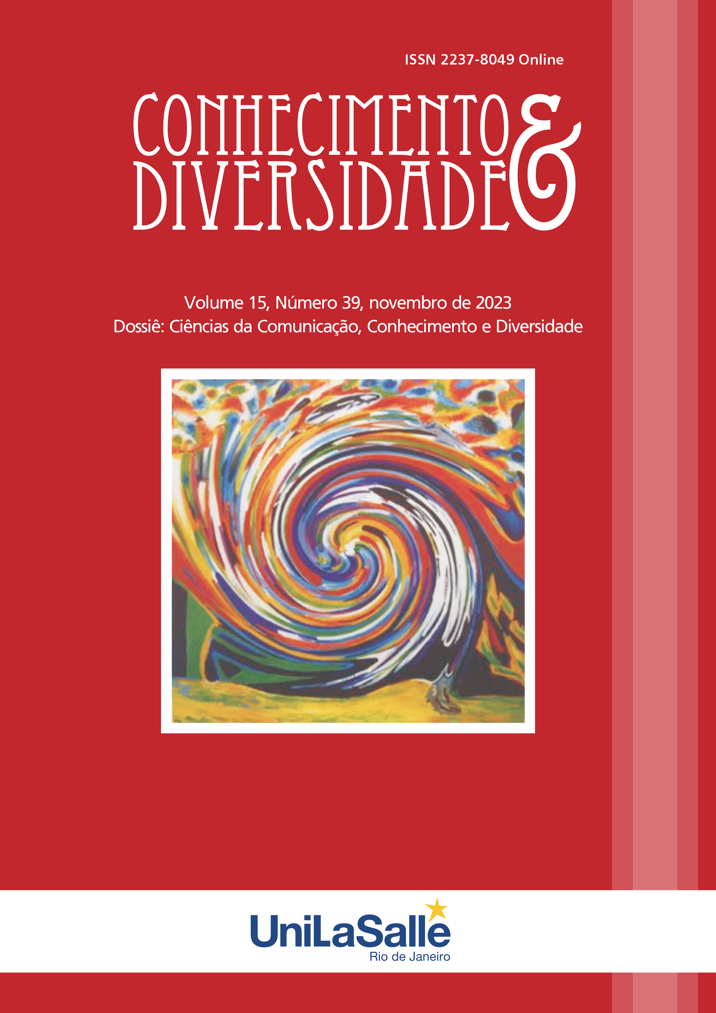DECISION MAKING SPHERE
THE RELATIONSHIP BETWEEN MANAGEMENT AND EXPERTS (TRUST PARAMETER)
DOI:
https://doi.org/10.18316/rcd.v15i39.11154Keywords:
Crisis, Decision-Making Sphere, Management, Expert, ComponentAbstract
The health crisis, like any other crisis, is an unexpected event that has triggered a series of dysfunctions. Its emergence and spread did not allow states enough time to prepare to deal with the fallout from this crisis. The COVID phenomenon exposed the reality of the decision-making process within institutions. It revealed the dysfunction in the crisis management process, which aimed to make decisions capable of protecting states and reducing the overall impact of the crisis. However, we cannot ignore the complexity of the decision-making process, which derives its complexity from several factors such as the quality of available information, the diversity of conceivable options, and uncertainty. In a crisis situation, the decision-making process becomes increasingly complex because the factor of "time" is limited or even nonexistent. This makes the ability to make decisions delicate in the face of challenges, and the existence of a probability of failure that was hardly tolerable during a health crisis. Aware of this complexity, institutions have established an entity that we can describe as the decision-making sphere, composed of management and experts. Management provides a global vision and a strategic perspective, considering all aspects related to the organization, such as reputation, financial aspects, and operational aspects. Meanwhile, experts provide information based on their experience and expertise. Their input is crucial in a crisis situation, as experts, thanks to their expertise, have the ability to provide well-founded recommendations that management can benefit from in making informed decisions. These two components cannot operate separately and must be capable of collaborating and cooperating, showing flexibility and adaptability to achieve the desired outcome: surviving the crisis. The purpose of this article is to explore the components of the decision-making sphere in times of crisis and to demonstrate the relationship that must be formed between management and experts in a crisis situation.
References
Armand Hatchuel, Pascal Le Masson, Benoit Weil. (2022). Covid-19, l’ expert et le politique face à l’inconnu : deux responsabilités à repenser. Hervé Dumez, Benjamin Loveluck, et Alexandre Mallard. Innover en temps de crise Réactions et adaptations face à la crise Covid-19,.
B., J. (1994). Décider ou ne pas décider ? ed. Maxima, Laurent du Mesnil.
Boin, A., & 't Hart, P. (2007). Crisis Decision Making: The Central Role of the 'Pre-Crisis' Phase. Journal of Contingencies and Crisis Management, 15(1), 50-59.
Bootz Jean-Philippe, L. P. (2015). Solicitation of experts under uncertainty: the case of a polar exploration. . Journal of Knowledge Management, , 19(5), 900-911.
Bootz Jean-Philippe., &. S. (2014). L’expert en entreprise : proposition d’un modèle définitionnel et enjeux de gestion. . Management et Avenir, 1(67), 80-102.
Bootz Jean-Philippe., L. P. (2019). L’enquête comme logique de sollicitation des experts en mode exploration : analyse de deux expéditions en milieux extrêmes. Innovations, 59(1), 49-70.
Broad, R. (2007). Knowledge Management’ : a Case Study of the World Bank’sResearch Department. Development in Practice, vol. 17, n 4-5, p. 700-708.
Camille, N. (2020). L’expert et le profane : qui est juge de la qualité universitaire ?. Genèses, 119, 51-72. .
Chevallier, J. (2021). LE RÔLE DES EXPERTS DANS LA PRISE DE DÉCISION PUBLIQUE : CONFISCATION DE LA DÉCISION OU INSTRUMENTALISATION DE L’EXPERTISE ? In L’abandon du projet d’aéroport Notre-Dame-Des-Landes. Quels enseignements ?, Presses universitaires de Rennes, pp. 285-296.
David C. Wilson, P. C. (2010). Handbook of Decision Making. Royaume-Uni: Wiley.
Delmas, C. (2011). Sociologie politique de l’expertise. La Découverte , « Repères ».
Delphine, v. H. (2008). L'émotion et la prise de décision. Revue française de gestion, 182, 33-44.
Didier., T. (2010). L'expert et la décision en santé publique. . Les Tribunes de la santé., 27, 33-48.
Dimitri Della Faille, Valérie La France-Moreau and Laurent Paradis-Charrette. (2016). Discours à propos du rôle de l’expertise dans les processus de prise de décision en développement international. Politique et Sociétés,, 35(2-3), 215–237.
Ericsson, K. A. (2007). The Making of an Expert. Harvard Business Review, 85(7/8), 114.
Fink, S. (1986). Crisis management: Planning for the inevitable. American Management Association.
Fukuyama, F. (1995). Trust: Social Virtues and the Creation of Prosperity. New York, NY: Free Press.
Gauss, S. .. (1985). Decision making. models and algorithm: a first course. Éd. John Wiley and Sons,.
Giovanna, M. (2020). Confiance, technologie et santé publique en période de Covid-19. . Regards.
Halawany-Darson, R. (2010). Le Traitement de l'information dans le processus de prise de décision du consommateur: le cas de la traçabilité des produits alimentaires. . Gestion et management. Université d'Auvergne - Clermont-Ferrand I; VETAGRO SUP - CAMPUS AGRON.
KAHNEMAN D., T. A. (1979). Prospect Theory : An analysis of decision under risk. Econometrica, 47, p. 263-291.
Mitroff, I., & Anagnos, G. (2010). Leadership in Times of Crisis: Insights from an Interview with John D. Wren. Organizational Dynamics.
Orianne, C. (2018). Un processus de décisions complexe associant plusieurs acteurs aux connaissances complémentaires. Avignon France.
Pochic., S. (2004). Le manager et l’expert, des figures imposées ?. in Karvar A., Rouban L. (dir.). Lescadres au travail, de nouvelles règles du jeu,. La Découverte,, pp.168-198, .
Sandrine, G. (1997). Qu'est-ce qu'un expert ? Vacarme, 3, 26-27. .
Schlenker B.R., H. B. (1973). The effects of personality and situational variables on behavioral trust,. Journal of Personality and Social Psychology, 25, 3, 419-427.
Downloads
Published
Issue
Section
License
Copyright (c) 2023 Imane El Kortbi , Houssame Nekhass, Fatima-Ezzahra Yassine , Zakaria Charia, Moulay Maati Alaoui Fennane , Abdelfattah Lahiala

This work is licensed under a Creative Commons Attribution 4.0 International License.
As recommended by the Public Knowledge Project, RCD adopts for its articles a CREATIVE COMMONS Attribution CC BY 4.0 license.
This license allows others to distribute, remix, adapt and build upon your work, even commercially, as long as they credit you for the original creation.
This is the most appropriate license offered.
Recommended for maximum dissemination and use of licensed materials.



